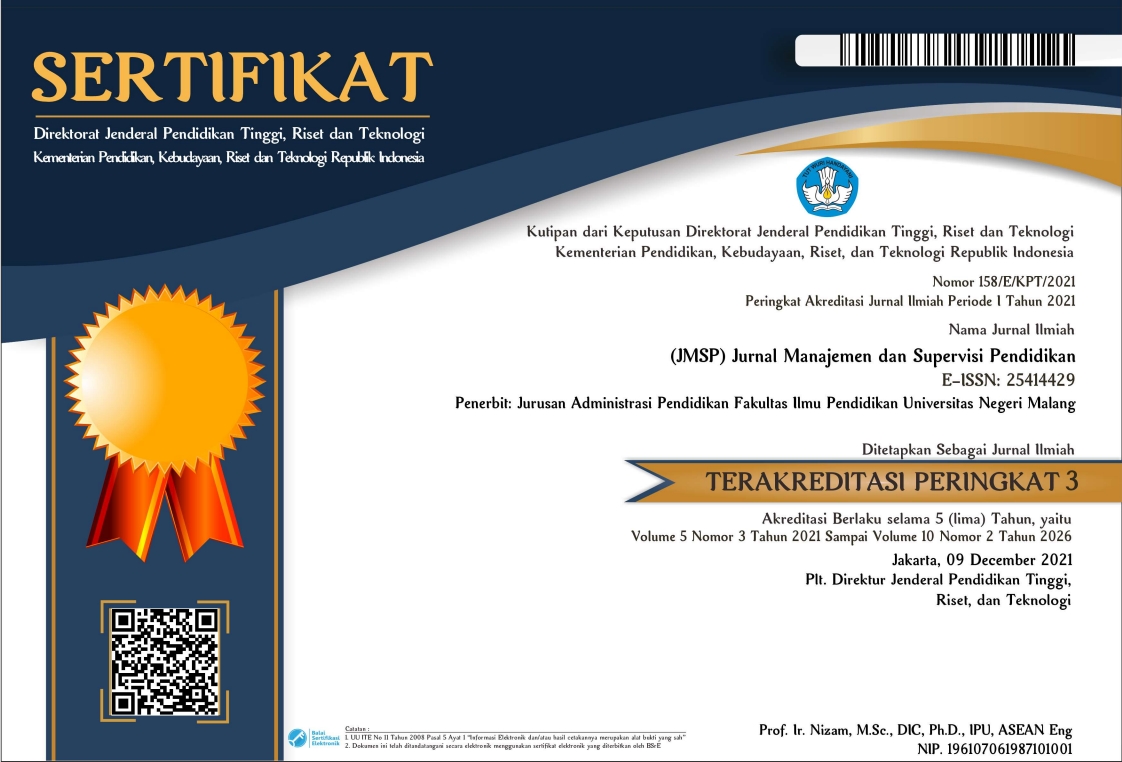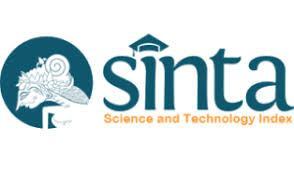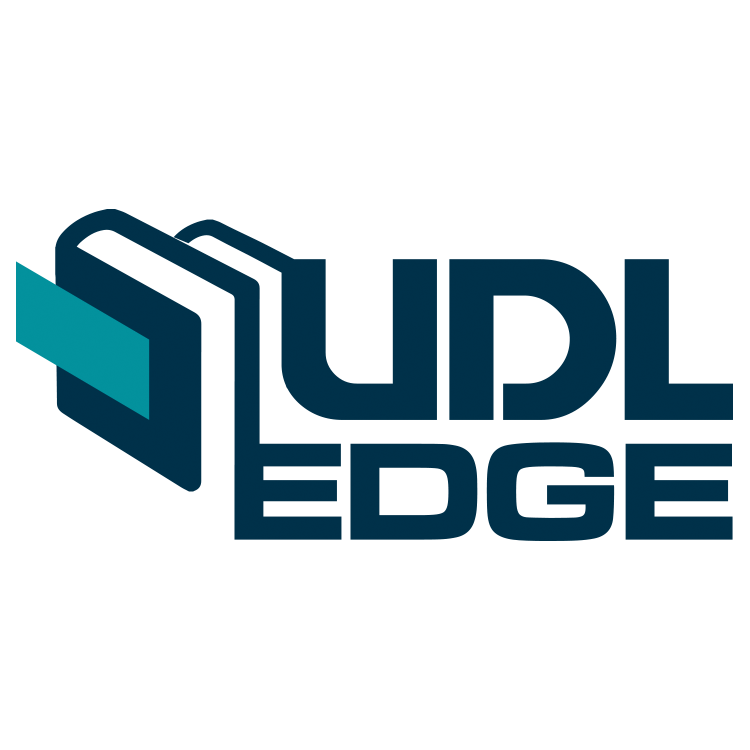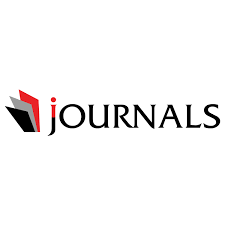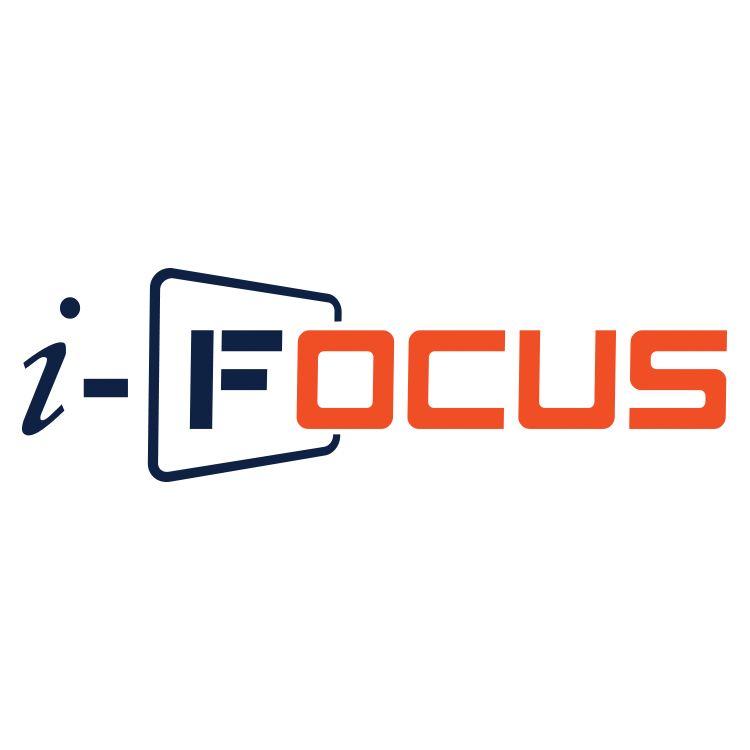The Influence of Work Environment and Organizational Culture on Organizational Performance Mediated by Learning Agility in Junior High Schools
Abstract
Keywords: Work environment, organizational learning culture, learning agility, organizational performance.
Full Text:
PDFReferences
Aguilera, R. V, De Massis, A., Fini, R., & Vismara, S. (2024). Organizational goals, outcomes, and the assessment of performance: reconceptualizing success in management studies. Journal of Management Studies, 61(1), 1–36.
AlSaied, M. K., & Alkhoraif, A. A. (2024). The role of organizational learning and innovative organizational culture for ambidextrous innovation. The Learning Organization, 31(2), 205–226.
Andargie, M. S., & Azar, E. (2019). An applied framework to evaluate the impact of indoor office environmental factors on occupants’ comfort and working conditions. Sustainable Cities and Society, 46, 101447.
Aris, A. A., Murthada, M., Hendra, M., Zainudin, Z., Hartini, H., Malik, M. A., & Firdaus, M. (2023). The Role of Management of Human Resources in Enhancing The Quality of Schools. Innovative: Journal of Social Science Research, 3(3), 11012–11023.
Armanious, M., & Padgett, J. D. (2021). Agile learning strategies to compete in an uncertain business environment. Journal of Workplace Learning, 33(8), 635–647.
Asbari, M. (2024). The Effect of Transformational Leadership, Organizational Structure and Learning Culture on School Innovation Capacity. PROFESOR: Professional Education Studies and Operations Research, 1(02), 22–32.
Asfahani, A. (2024). Curating future leaders: a literature review on managerial curriculum in learning organizations. The Learning Organization.
Bandura, A. (2001). Social cognitive theory: An agentic perspective. Annual Review of Psychology, 52(1), 1–26.
Briner, R. B. (2000). Relationships between work environments, psychological environments and psychological well-being. Occupational Medicine, 50(5), 299–303.
Deci, E. L., Ryan, R. M., Deci, E. L., & Ryan, R. M. (1985). Conceptualizations of intrinsic motivation and self-determination. Intrinsic Motivation and Self-Determination in Human Behavior, 11–40.
DeRue, D. S., Ashford, S. J., & Myers, C. G. (2012). Learning agility: In search of conceptual clarity and theoretical grounding. Industrial and Organizational Psychology, 5(3), 258–279.
Do, H., Budhwar, P., Shipton, H., Nguyen, H.-D., & Nguyen, B. (2022). Building organizational resilience, innovation through resource-based management initiatives, organizational learning and environmental dynamism. Journal of Business Research, 141, 808–821.
Donalds, E. S. (1986). Political and organizational analysis in the policy curriculum. Journal of Policy Analysis and Management, 6(1), 45–55.
Edmondson, A. (1999). Psychological safety and learning behavior in work teams. Administrative Science Quarterly, 44(2), 350–383.
Erens, R., & Leuders, T. (2024). Professional behaviour of teacher facilitator: Roles, beliefs and challenges. LUMAT-B: International Journal on Math, Science and Technology Education, 9(2), 5.
Fios, F., Marzuki, M., Ibadurrahman, I., Renyaan, A. S., & Telaumbanua, E. (2024). Innovative Leadership Strategies For School Principals: Building A Holistic Educational Environment Focused On Student Achievement In The Era Of Technology And Globalization. International Journal Of Teaching And Learning, 2(1), 266–281.
Frazier, M. L., Fainshmidt, S., Klinger, R. L., Pezeshkan, A., & Vracheva, V. (2017). Psychological safety: A meta‐analytic review and extension. Personnel Psychology, 70(1), 113–165.
Garvin, D. A. (2000). Learning in action: A guide to putting the learning organization to work. Harvard Business Press.
Lee, H., & Choi, B. (2003). Knowledge management enablers, processes, and organizational performance: An integrative view and empirical examination. Journal of Management Information Systems, 20(1), 179–228.
Lijun, W., & Te, H. C. (2024). The role of primary school principals and administrators in promoting Student achievement, Teacher effectiveness, and a positive school culture. Journal of Roi Kaensarn Academi, 9(8).
Maki, P. L. (2023). Assessing for learning: Building a sustainable commitment across the institution. Routledge.
Nguyen-Duc, T., Phuong, T. T., Le, T. T. B., & Nguyen, L. T. T. (2023). Validation of dimensions of the learning organization questionnaire (DLOQ) in a Vietnamese context. Learning Organization, 30(5), 511–531. https://doi.org/10.1108/TLO-04-2022-0041
Oludeyi O S. (2015). A review of literature on work environment and work commitment: Implication for future research in citadels of learning. Human Resource Management, 18(2), 32–46.
Preacher, K. J., & Hayes, A. F. (2004). SPSS and SAS procedures for estimating indirect effects in simple mediation models. Behavior Research Methods, Instruments, & Computers, 36, 717–731.
Rajaram, K. (2023). Future of learning: Teaching and learning strategies. In Learning Intelligence: Innovative and Digital Transformative Learning Strategies: Cultural and Social Engineering Perspectives (pp. 3–53). Springer.
Senge, P. (1990). Peter Senge and the learning organization. Dimension, 14.
Smith, B. A., & Watkins, K. E. (2024). Measuring learning agility: a review and critique of learning agility measures. Personnel Review, 53(3), 704–720.
Suherni, E. S., Wahyudin, A., & Mu’in, A. (2023). Maintaining the Quality of the Institution by Implementing the Education Services Mix. Journal of Educational Analytics, 2(4), 503–514.
Syahrir, D. R., Zakaria, Z., & Labo, I. A. (2024). The Role of Job Satisfaction as a Mediating Variable Between Work Environment and Employee Productivity. Advances in Human Resource Management Research, 2(3), 127–139.
Tripathi, A., & Kalia, P. (2024). Examining the effects of supportive work environment and organisational learning culture on organisational performance in information technology companies: The mediating role of learning agility and organisational innovation. Innovation: Organization and Management, 26(2), 257–277. https://doi.org/10.1080/14479338.2022.2116640
Refbacks
- There are currently no refbacks.
Copyright (c) 2025 JMSP (Jurnal Manajemen dan Supervisi Pendidikan)

This work is licensed under a Creative Commons Attribution 4.0 International License.

